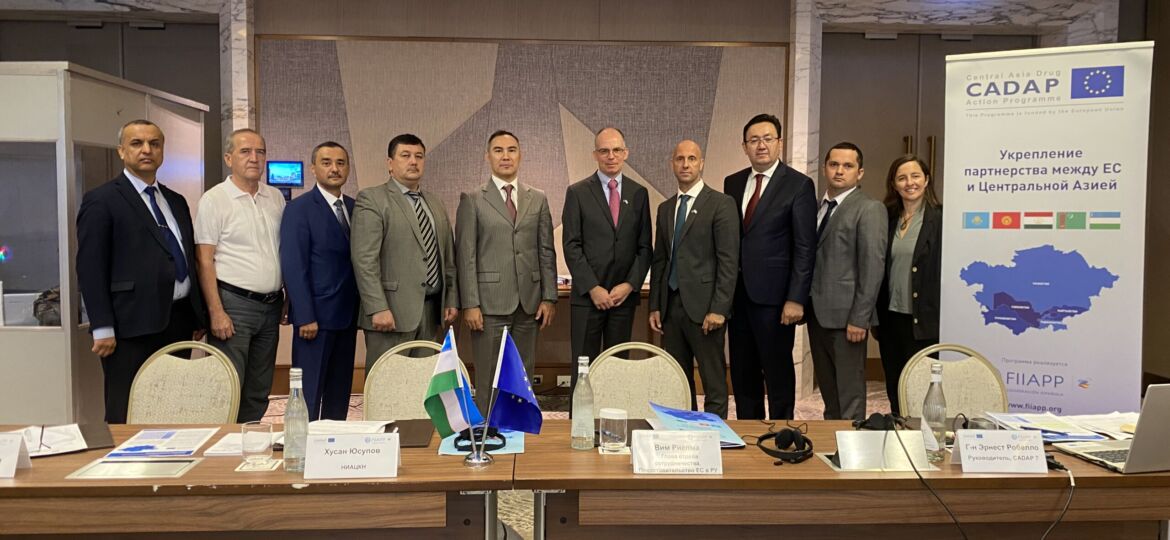
Tashkent, September 23, 2022
Central Asia Drug Action Programme continues the 2nd round of Technical Committees meetings to discuss the main developments within the action to date and agree on the way forward. The next meeting has been conducted in Tashkent on September 23. The action’s main stakeholders were convened to the events, including the European Union Delegation, implementing agency FIIAPP, and the Government authorities such as the National Informational and Analytical Centre on Drug Control, Ministries of Foreign and Internal Affairs, Education, Justice, Health, Ministry on Mahalla and Oldest Generation Support. The meeting resulted in forming and agreeing on a country work plan of the Programme for the upcoming year with specific outputs, activities and technical partnership arrangements.
Mr Wim Riepma, Head of Cooperation of the Delegation of the EU to Uzbekistan opened the event and highlighted that “CADAP 7 reflects the continuity of the EU long-term engagement with Central Asian partners to help further strengthen their drug demand reduction national plans and continue cooperating in the development of integrated and balanced drug policies. ”
Mr. Khusan Yusupov, leading expert of international department of National Informational and Analytical Center on Drug Control under the Cabinet of Ministers expressed gratitude to European Union and CADAP programme for continuous support that was provided to Uzbekistan during previous phases, especially for technical and expert and assured readiness for successful implementation of the Work Plan under the new phase.
It should be noted that wide range of activities is planned for Uzbekistan within CADAP 7 – development of a roadmap on drug control, technical support to policy and partners, improving data collection, production and dissemination of targeted studies, technical support to toxicological laboratories, development of preventive programmes, development of treatment programmes in accordance with European standards.
The Technical Committees continue to serve as a basis for monitoring progress towards project goals and a reference point for efficiency of cooperation and partnerships with the beneficiaries during the implementation phase.


